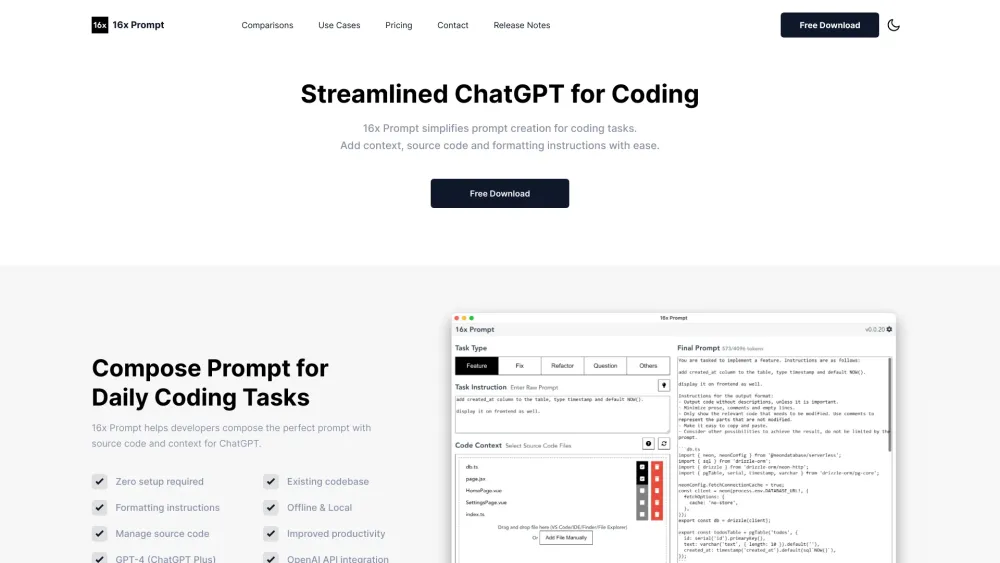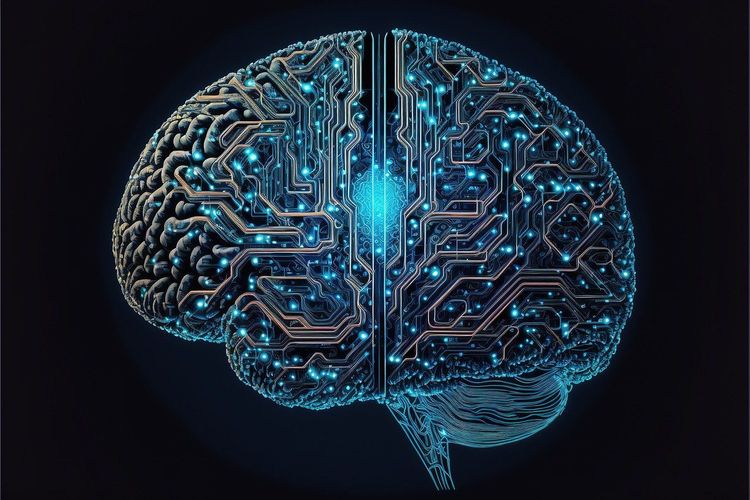Etched has successfully raised $120 million to challenge Nvidia in the AI chip market.
The company is developing a new chip named Sohu, designed to handle a crucial aspect of AI processing: the transformer architecture. By integrating this architecture directly into its chips, Etched claims to be creating the most powerful servers for transformer inference, declaring Sohu the fastest transformer chip ever made.
This announcement is particularly noteworthy as Nvidia recently surpassed Microsoft to become the world's most valuable company, reaching a valuation of $3.3 trillion. Etched, backed by influential investors like Peter Thiel, is confident in its 35-member team’s ability to compete with Nvidia.
The funding round, led by Primary Venture Partners and Positive Sum Ventures, attracted institutional investors including Hummingbird, Fundomo, Fontinalis, Lightscape, Earthshot, Two Sigma Ventures, and Skybox Data Centers.
Notable angel investors include Peter Thiel, Stanley Druckenmiller, David Siegel, Balaji Srinivasan, Amjad Masad, Kyle Vogt, Kevin Hartz, Jason Warner, Thomas Dohmke, Bryan Johnson, Mike Novogratz, Immad Akhund, Jawed Karim, and Charlie Cheeve.
Alex Handy, director of the Thiel Fellowship, commented, “Investing in Etched represents a strategic bet on the future of AI. Their chips address scalability issues that competitors fear to tackle, helping to combat the stagnation seen elsewhere in the industry. The founders exemplify the unconventional talent we support, having dropped out of Harvard to take on the semiconductor challenge. They are paving the way for Silicon Valley to innovate without the burden of legacy tech concerns."
The demand for powerful GPUs continues to grow.
Etched was founded by Harvard dropouts Robert Wachen, Gavin Uberti, and Chris Zhu, who have made a significant commitment to AI since June 2022 by betting on the transformative potential of the transformer model. Historically, various AI models such as CNNs, RNNs, and U-Nets played strong roles in their respective fields, but transformers (the “T” in ChatGPT) emerged as the first scalable AI model.
“We believe intelligence will continue to scale with compute. Our bet is that companies will invest billions in AI models running on specialized chips,” said CEO Gavin Uberti in a blog post. “Over the past two years, we have developed Sohu, the world's first specialized ASIC for transformers. This chip cannot run traditional AI models, such as DLRMs that enhance Instagram feeds or protein-folding models, nor can it handle CNNs or RNNs. Yet for transformers, Sohu is unmatched in speed and affordability, outpacing even Nvidia’s upcoming Blackwell GPUs significantly.”
Uberti stressed that the landscape of AI models has shifted dramatically toward transformers, exemplified by developments like ChatGPT, Sora, Gemini, and Stable Diffusion 3. If new architectures arise, such as SSMs or monarch mixers, Etched's chips may lose relevance. However, if their predictions hold true, Sohu could change the game entirely. The company is partnering with TSMC to manufacture on the advanced 4nm node.
Why this gamble?
Etched is focusing on transformers.
The key to achieving superintelligence, according to Etched, lies in scale. In just five years, AI models have evolved from rudimentary forms to outperform human capabilities on standardized tests, driven primarily by increased scale.
By expanding AI models and enhancing training data quality, these systems become significantly smarter. The amount of FLOPS required to train leading models has surged by a staggering 50,000 times from GPT-2 to Llama-3-400B within five years.
Uberti explained that while AI architectures used to evolve rapidly—with a multitude of models emerging—current state-of-the-art systems, such as Llama 3, closely resemble their predecessors like GPT-2, with only minor adjustments. This trend is likely to continue.
“All major players, including Google, OpenAI, Amazon, and Microsoft, are investing over $100 billion in AI data centers,” Uberti noted. Despite differing opinions in academia, leading AI labs largely agree that scaling large language models (LLMs) will lead us toward superintelligence.
Uberti emphasized, “We are witnessing the largest infrastructure expansion in history. Scaling laws have shown consistent success over the last ten orders of magnitude (from $10^16 to $10^{26} FLOPS). If projections hold for the next four orders (up to $10^{30} FLOPS), superintelligence is within reach, and AI chips will dominate market demand.”
Flexible chips have plateaued.
Etched's perspective on GPUs.
In recent years, frequent changes in model architectures, such as CNNs, DLRMs, and LSTMs, dominated the AI landscape, each incurring substantial costs. The overarching market for AI chips ranged from $10 billion to $20 billion.
To cater to this extensive market, many companies developed versatile AI chips for a variety of architectures, including Nvidia’s GPUs, Google’s TPUs, Amazon’s Trainium, and others. However, all have struggled to match Nvidia’s H100 performance.
Uberti noted, “Many competitors claim performance gains by combining multiple chips into a single card, while in reality, performance per area has remained stagnant—challenges still loom for anyone seeking to transition from GPUs.”
Etched asserts that every large computing market eventually gravitates toward specialized chips, from networking to Bitcoin mining, offering vast performance advantages over GPUs. Uberti stated, “Due to the immense financial stakes in AI, specialization is inevitable.”
Etched predicts the majority of investment will focus on models exceeding 10 trillion parameters, which will likely operate from a few massive cloud data centers, echoing trends seen in chip manufacturing where high-cost, high-resolution facilities have supplanted smaller ones.
“Even if a superior architecture is developed, transitioning away from transformers entails significant challenges, as foundational work must be redone across various technical facets,” he added. As AI model complexity increases and training costs rise, the demand for specialized chips will grow, making early adopters leaders in the field.
Etched is positioned to lead.
The founders—Wachen, Uberti, and Zhu—assert that no architecture-specific AI chips have been built to date. Previously, creating such specialized chips required substantial demand and conviction about their lasting viability.
“We have chosen to invest in transformers, which is rapidly gaining traction,” said Uberti.
With rising demand for transformer inference now exceeding $5 billion, major tech players, including OpenAI, Google, Amazon, and Microsoft, have integrated transformer models into their operations.
Uberti highlighted that distinct architectures have consolidated significantly. Models like OpenAI's GPT series, Google’s PaLM, and Facebook’s LLaMa are largely centered around transformers.
“We're advancing swiftly to realize Sohu’s potential,” he affirmed. “We are on course for the fastest development cycle for a validated 4nm die. Collaborating with TSMC, we are dual-sourcing HBM3E from top-tier vendors, securing tens of millions in reservations from AI companies.”
The company also pointed out that AI models today are often too expensive and slow to deliver products effectively, with challenges like high operational costs for AI coding agents and slow processing times for video models.
Uberti concluded, “With Sohu, we can transform the landscape. Real-time video, audio, agents, and search capabilities are finally within reach, radically improving the economic viability of AI products."
Can Etched outpace Nvidia?
Etched’s distinct approach to parallel processing positions it uniquely in the market.
In response to questions about how a smaller company could eclipse Nvidia, COO Robert Wachen explained, “Historically, the AI compute market was splintered, with numerous models in active use. Billions have been spent on transformer models, indicating a shift toward specialization. Although our chips won’t outperform GPUs in generalized workloads, they will dominate transformer inference, essential for generative AI products.”
This specialization gives Etched a competitive edge, allowing its chips to excel where others cannot.






